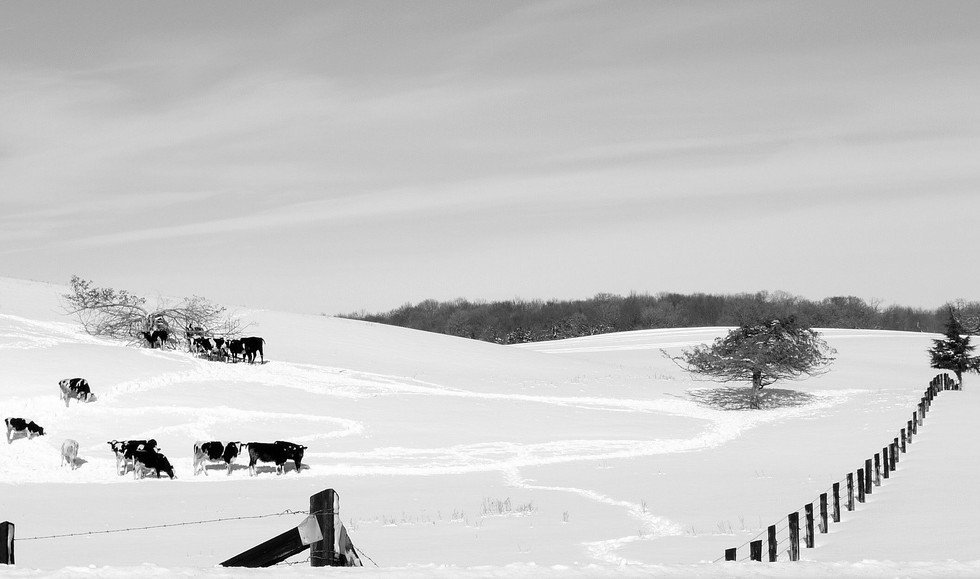Happy Slow, Quiet, Dull New Year
Posted on January 22, 2021

The week between Christmas and New Year’s Day was wonderfully different than every other week of the year on the southern Illinois dairy farm of my youth.
Overall, it was the slowest, quietest, and—especially for my hardworking parents—dullest week of the year.
Most post-Christmas weeks, Mom and Dad napped longer than usual, actually had time to enjoy Mom’s great meals, and slowly dipped their collective toe into the “bookwork” season, the dreaded prison of bank statements, depreciation schedules, and tax forms.
Sure, the cows had to milked twice a day, fed five times a day, and we continued to eat at least as often. Still, in between big meals and dull chores, my brothers and sister found hours to tinker on bikes, play cards, do jigsaw puzzles, hunt, and—if the weather cooperated—ice skate or sled.
Better than all those treats combined was watching daytime television, a luxury that was strictly “verboten” everyday but Sunday any other week.
We weren’t the only loafers that week. Hired men Howard, the farm’s indispensible herdsman, and Jackie, its resident hypochondriac and Howard’s younger brother, spent most of it in the barn’s dry, warm milk room sipping instant coffee while, like sphinxes, silently looking for blue sky through foggy windows.
My father never worried about either man’s idleness that week; he trusted them to do what was necessary, from the usual chores to, maybe, bed the dry cows or haul manure. And, without fail, they did.
My mother also enjoyed what she called “a light week” despite the cooking required by your average farm family of eight.
First off, Uncle Honey, Dad’s dangerous, retired uncle, usually spent the holidays at home and away from Mom’s dinner table. Dad was equally pleased because no Honey meant no money would be needed to fix the bent or broken machinery that usually floated on Honey’s wake.
The second key to her lighter week was the crew of six indentured servants, her children, who were present to peel potatoes, bake desserts, wash and dry dishes, clean house, fold clothes, wash windows and scrub, polish, or dust anything that might cross her dirt-focused mind.
Our crabby help was probably the best Christmas gift we never gave her every year.
The very best part of that week, however, arrived every time neighbors or business friends arrived to wish my parents a happy new year and deliver a holiday gift. Most times the gift was some treat like fresh summer sausage, sugary Christmas cookies or a bottle of 90-proof libation. My father always insisted in sharing all with the givers. Soon afterwards the visiting began in earnest.
If any visit bumped into the evening milking time, one of my brothers or I would be dispatched to dairy barn for the nocturnal duty with the ever-faithful Howard. I never minded getting tabbed because—and I still believe this—even the cows somehow knew this was a slow, quiet week and the work seemed almost meditative.
But there was something else, too; something that set us—Howard, the cows, and me—apart from the rest of the dark and cold countryside. Back then I believed it was the idea that we were doing something vital, something other people depended on, that made us special, smelly though we were.
Now, though, I know that was only a part of it. The bigger parts were the gifts of friendship, kindness, and love that you could see, hear, and taste from our neighbors, family, farmhands, and even the cows.
In fact, it was a week of Christmas days wrapped more in love and care rather than in paper and ribbons and it served up almost every new year on a clean slate with good cheer.
© 2021 ag comm
Share This